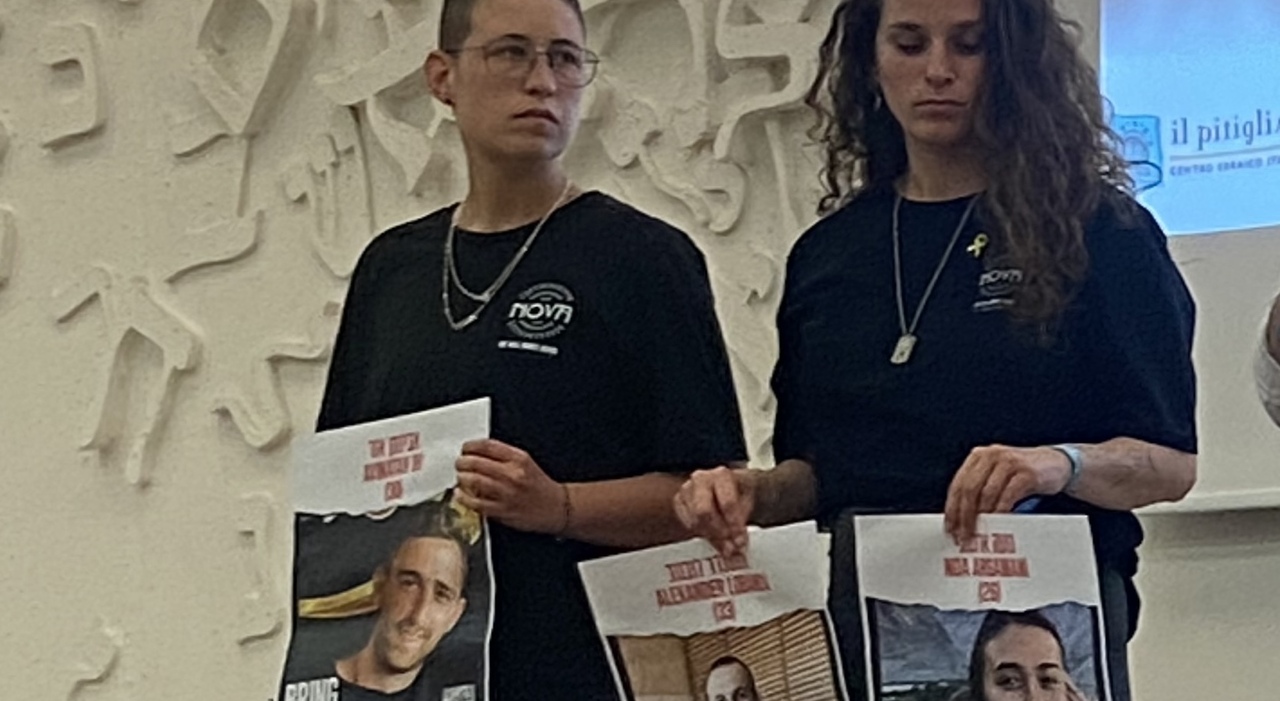Tuesday 16 April 2024, 18:10 - Last updated: 18:50
Miraculously surviving the Hamas pogrom, two girls are touring Europe to make it understood that nothing in Israel will ever be the same again. On October 7th, Hila, a 26-year-old university student and bartender at a music festival, had worked all night and was supposed to finish at eight in the morning. At six, a boy approached the counter and pointed out to her: 'look, there are also fireworks at the festival'. Unfortunately, they were missiles being fired by Hamas from Gaza at the moment when - in the vast area of the Nova festival - dozens of armed terrorists began to burst in. Today, Hila - miraculously spared by fate - can no longer sleep, has constant panic attacks, feels disconnected from reality, and is no longer able to concentrate. She has had to interrupt her studies for the time being. And if she just happens to hear passers-by speaking Arabic on the street, she is seized by a panic attack. She sees her future in Israel as uncertain and does not think there can be room for a two-state solution.
Naama, on the other hand, is 26, lives in Haifa, and was a manager in the festival's organizing team. They had been working on this event for a year and a half. 'At six in the morning we saw the missiles but didn't know what to do because there was a lot of traffic'. Once she realized the impending danger, she started running without knowing where, just to find a place to hide. Eventually, she found one of the large garbage containers placed at the edges of the festival area to collect the plastic bottles consumed during the night of music. 'We were in there on top of each other, there was no space even to move our legs and we stayed like that for hours in silence'. Suddenly, Naama heard the terrorists arriving who realized that there were people inside and started shooting randomly at the large container. Three died and the others were injured. Naama was wounded in several parts of her body and was saved hours later risking hemorrhage. She too, if she happens to hear someone speaking Arabic while she is on the street, is seized by panic attacks. Her future is something unimaginable. Then she admits that she would no longer want to grow up in Israel nor raise her children there.
The two girls arrived in Rome after a long tour in Europe to hold a conference at the Pitigliani, organized by Brit Am and WZO, telling a large audience about that slaughter through the eyes of two survivors. The unexpected pogrom has changed the lives of all Israelis. Since then, they explain, life for no one is the same. An event seen before, shocking because it is perceived as a point of no return. 'Nothing will be as it was before' the two girls repeat, going into detail about what they were doing to save themselves. Both, seven months apart, try to give themselves a dimension of normalcy even though nothing is normal anymore. 'Our generation has a lot of energy and will be able to recover'.
They have lost dear friends. They cry. They raise the photographs of companions still in the hands of Hamas. Hila repeats in a low voice that she is sure that among the Palestinians there are 'innocent' people but then adds: 'I don't believe coexistence will be there'. The girls are then questioned by several Roman peers, the questions are most varied. Naama and Hila ask everyone for support and to combat the growing anti-Semitism on social media.
© ALL RIGHTS RESERVED
This article is automatically translated
